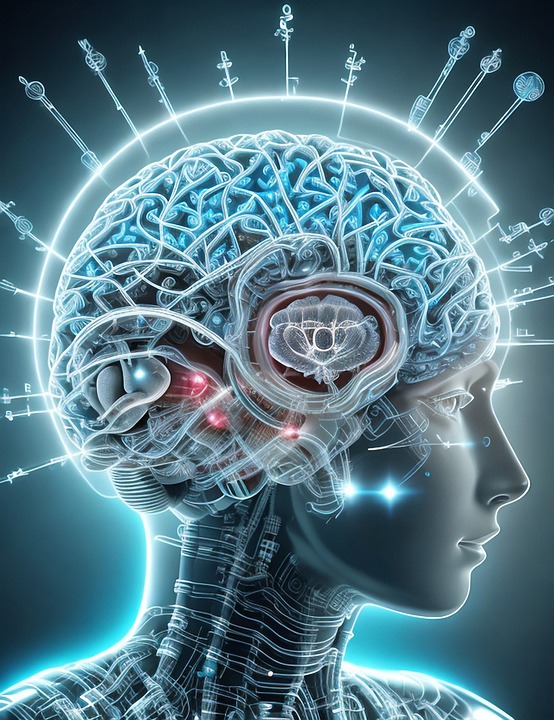The Impact of Artificial Intelligence on the Food and Beverage Industry
Introduction
Artificial intelligence (AI) has rapidly transformed various sectors, and the food and beverage industry is no exception. AI technologies are revolutionizing the way food is produced, distributed, and consumed, leading to improved efficiency, sustainable practices, and enhanced customer experiences. In this article, we will delve into the impact of AI on the food and beverage industry, exploring how this technological advancement is reshaping every aspect of the sector.
1. Transforming Agriculture with AI
The agricultural sector is the backbone of the food and beverage industry, and AI is playing a pivotal role in its modernization. By analyzing data from satellite imagery, soil sensors, and weather forecasts, AI enables farmers to optimize their farming practices. For instance, AI-powered drones equipped with cameras and sensors can monitor crop health, detect diseases or nutrient deficiencies, and even predict yield levels. This helps farmers intervene promptly, resulting in increased crop productivity and reduced use of chemical inputs.
2. Enhancing Food Safety Measures
Food safety is a paramount concern for consumers and regulators alike. AI systems are being employed to ensure safer and healthier food production processes. For instance, companies are using AI to analyze millions of social media posts, news articles, and other sources to detect and monitor outbreaks of foodborne illnesses. By tracking keywords and locations, AI-powered platforms can identify potential risks, enabling quicker responses and preventing widespread contamination.
3. AI-powered Robotics in Food Processing
Automation is a key driver of efficiency in the food and beverage industry, and AI-powered robotics is paving the way for a revolution in food processing. Robots equipped with AI algorithms can perform repetitive tasks such as picking, packaging, and quality control with incredible precision. This not only improves the speed and accuracy of production but also frees up human workers to focus on more complex and value-added tasks. Moreover, the use of robots equipped with AI ensures consistent quality standards, reducing product defects and waste.
4. Optimizing Inventory and Supply Chain Management
Managing inventory and supply chains can be a complex task, but AI is simplifying the process and making it more efficient. AI algorithms analyze historical sales data, market trends, and even external factors like weather patterns to forecast demand accurately. With this information, food producers and distributors can optimize their inventory levels, reducing waste due to overstocking and ensuring timely replenishment. Additionally, AI can enhance route optimization for deliveries, minimizing transportation costs and reducing the carbon footprint of the supply chain.
5. Personalizing the Customer Experience
AI technologies are enabling unprecedented levels of personalization in the food and beverage industry. Companies are leveraging AI-powered recommendation systems to provide customers with tailored suggestions based on their preferences and purchase history. For example, food delivery apps use AI algorithms to learn about customers’ food preferences, leading to more accurate and timely recommendations. This personalized approach enhances customer satisfaction, drives repeat purchases, and increases brand loyalty.
6. Revolutionizing Food Creation and Menu Planning
AI is pushing the boundaries of culinary creativity by revolutionizing food creation and menu planning. Chefs and food scientists are using AI algorithms to develop innovative recipes and discover unheard-of flavor combinations. AI is also employed to analyze customer feedback and social media trends, providing insights for menu planning. By understanding customer preferences, restaurants can continuously refine their offerings, keeping up with the ever-evolving tastes and demands of their patrons.
7. Redefining Customer Service and Automation
AI-powered chatbots and virtual assistants are becoming prevalent in the food and beverage industry, transforming customer service and automation. These virtual agents can handle customer inquiries, take orders, and even provide personalized recommendations. With advancements in natural language processing, these chatbots can understand and respond to customer queries more effectively, providing round-the-clock assistance and improving overall customer experience.
8. Sustainability and Waste Reduction
Sustainability is a pressing issue in the food and beverage industry, and AI is playing a crucial role in reducing waste and promoting sustainable practices. AI-powered systems can predict food spoilage and suggest optimal storage conditions, extending the shelf life of perishable products. Additionally, AI algorithms can identify patterns and optimize processes to reduce energy consumption in food manufacturing facilities. By minimizing waste and energy usage, AI contributes to a more sustainable and environmentally friendly food industry.
Conclusion
Artificial intelligence has catalyzed a significant transformation in the food and beverage industry. From optimizing agricultural practices to enhancing food safety, increasing efficiency, and delivering personalized experiences, AI is reshaping the entire sector. As the technology continues to evolve, the potential for further advancements in areas such as food creation, waste reduction, and sustainable practices is immense. The food and beverage industry stands to gain substantial benefits from embracing AI, resulting in improved productivity, profitability, and customer satisfaction.

